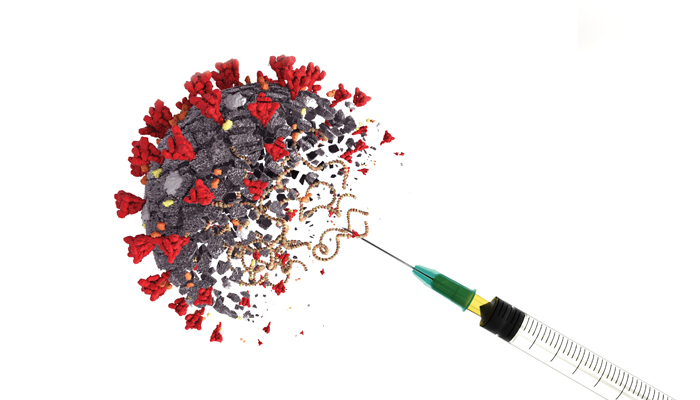
Muscat: People in Oman are hopeful that the COVID-19 situation in the country will improve in July, as the country’s vaccination drive gains momentum and more and more people gain immunity from the virus.
June has so far been the worst month of the pandemic, since it came to Oman in February 2020: 755 people died from the disease last month, which meant about one person died from the disease every hour last month. The number of active infections ratcheted up from 15,594 on 1 June, to 30,584 on the 30th, nearly doubling the country’s caseload.
During this period, there has also been a spike in patient admissions to hospitals and intensive care units. There were 802 people in hospitals on June 1, with 257 of them in ICUs, but by the 30th, the number of hospitalised COVID-19 patients also nearly doubled, growing to 1,597 admissions, with 519 of them in ICUs.
Doctors, however, say that a combination of the vaccination drive and a commitment to coronavirus preventive measures will bring numbers down. In the meantime, they have asked people to take steps to boost their natural immunity, which will help keep the virus at bay for longer.
As of June 28, 854,274 people in Oman have been vaccinated against COVID-19, according to the Ministry of Health. 643,744 people have received one dose, while about 210,530 have been vaccinated with both doses.
“The moment you are eligible to take the vaccination, please do so,” said Dr A Basheer, a senior internist at Badr Al Sama’a Hospital. “Do not listen to the rumours about the negative effects of vaccinations. They are the best ways to keep infections down, and if the infection numbers come down, then the virus will not be able to spread.”
Basheer added that vaccinations would also bring down patient numbers in hospitals, many of which have expanded to accommodate more and more people infected with COVID-19. Another way to stave off infection, he said, is for people to boost their natural immunity, which would avoid increased protection against the virus.
“Go outside, get fresh air, and commit to daily exercise – it is one of the best ways to improve your immunity naturally,” he said.
“Because there is a lockdown these days, you can do it before 8pm, either early in the morning, or after you come back from work. Also make sure you eat a healthy diet, which contains all the nutrients you need to fight off illnesses.”
Another medical practitioner, Dr Sathish N Veluswamy, a surgeon at Burjeel Hospital, advised people who feel they might have symptoms of COVID-19 to get themselves to the nearest doctor the moment they intensify, instead of waiting for them to go away on their own.
Early detection of the disease, he added, is one of the best ways to rid the body of it before it worsens and transmits to others.
“If you see your symptoms intensifying, please go to the doctor as soon as you can,” he said. “When the disease is caught early, then we can provide you with the right treatment options that will prevent you from hospitalisation and could enable you to see it through with only mild symptoms.”
He too asked people to boost their natural immunity, saying, “Exercises like yoga are one of the best ways to boost immunity.”
People in the country are also hopeful the vaccination drive will lead to a reduction in infection rates, which in turn could lead to a gradual resumption of their normal lives.
Ali Al Barwani, an Omani national, encouraged people to continue to take precautions against the virus, and hoped the expanded vaccination programmes would bring down case numbers.
“We have moved much of our work online, so a lot of our time is spent behind the screens,” he said. “But after a while, this does get quite tedious – you want to avoid doing things remotely, and you want to meet a few people. We have spent too much time behind the screen. We really miss the ways we used to work.
“Yes, technology has many powerful tools, but it is not necessarily healthy…the current situation has required us to sacrifice many things,” added Al Barwani. “Technology has now become the centre of lives, even at home: we are forced to stay at home, order food online, you cannot go outside, cannot visit your family members, and even when you do, COVID-19 is all people talk about. Now is the time, therefore, to maintain our health so we can contribute to ending this pandemic.”
Jassim Al Balushi, another local, said bringing case numbers down through vaccinations would also ease many of the stresses families are currently facing because of the uncertainty of the pandemic.
“We are required to remain indoors most of the time, so we do not have many of the freedoms we normally take for granted,” he said.
“We are unable to take our children to the places they want to go, we are careful about where we buy things from, because I am afraid for my family.”
“We need to monitor everything: who we go out with, whether they wear masks, we need to often check up on our kids to see that they and those with them are following the right measures,” he added. “Proper measures will see us hopefully return to a sustainable way of life.”